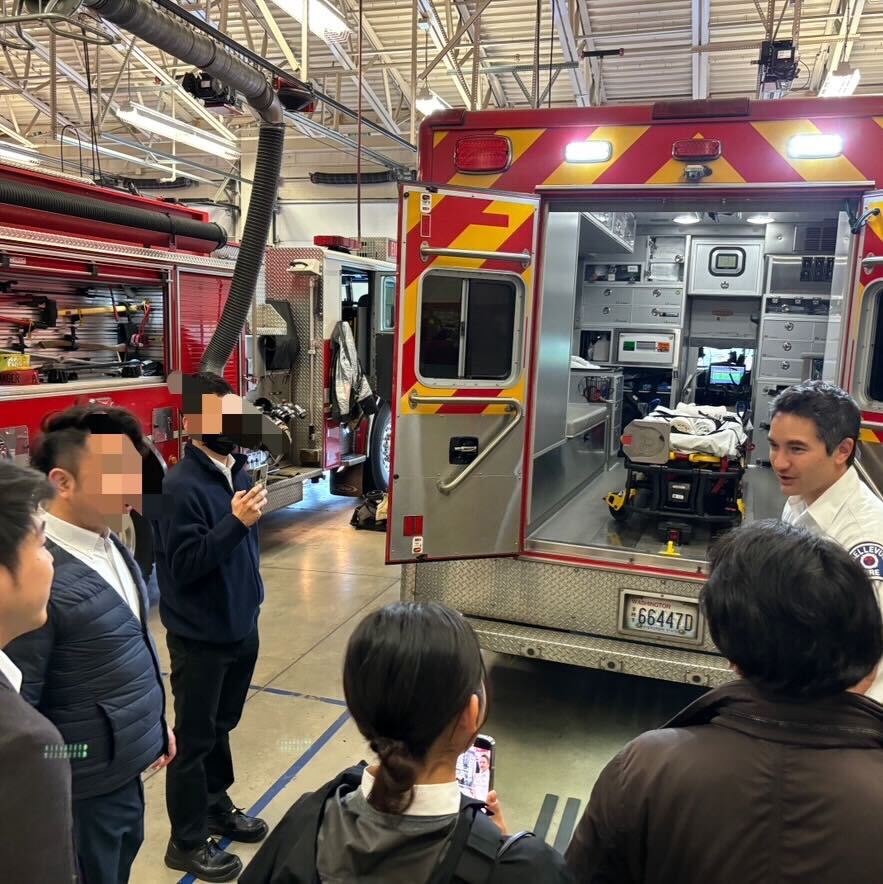In January 2024, the general incorporated association OPHIS, founded by experts in emergency medicine, will tackle the update of Japan’s emergency transport system. As the number of emergency callouts continues to rise nationwide and the strain on transport systems becomes more severe, OPHIS aims to build a new system leveraging both practical experience and academic insights from emergency services.

OPHIS: Rising to Increase the Number of Lives Saved
Ryo Niisaka, the representative director of OPHIS, is a lecturer at Kokushikan University’s Institute of Disaster Prevention and Rescue and holds a doctorate in emergency medicine. Niisaka’s background includes hands-on experience as a part-time emergency medical technician during his graduate school years. Witnessing the harsh working conditions and exhaustion faced by emergency responders in the field, Niisaka recognized the increasing concerns about worsening conditions in Japan’s aging society.
Niisaka believes that the fundamental issue in emergency medical care is the emergency transport system itself during 119 emergency calls, and that solving this issue requires collaboration among numerous stakeholders. Consequently, OPHIS was established in January 2024.
OPHIS’s vision is to realize a “Public-Private Partnership Emergency Transport System.” This system incorporates private patient transport providers into the emergency medical framework and strengthens coordination with public ambulances. The goal is to alleviate the strain on emergency responses and ensure rapid arrival of ambulances for critically ill patients.
Specifically, OPHIS plans to delegate patient transport between hospitals (inter-hospital transfers) and transport of minor injuries to private transport vehicles, allowing public ambulances to focus solely on transporting critically ill patients. This system draws on models from the U.S. and Singapore but aims to develop a unique Japanese approach.
OPHIS is working towards establishing the “Public-Private Partnership Emergency Transport System” region by region. This involves collaboration with local fire departments, hospitals, municipalities, private patient transport providers, and care facilities. Discussions, rule developments, and business planning are progressing, and preparations for societal implementation are underway. Niisaka initially anticipated a long-term effort but reports that progress has exceeded expectations in just six months since the organization’s founding. Positive support in regional surveys, adjustments, and policy recommendations suggest a promising future.
OPHIS’s deputy representative, Maehara, is concerned that the challenges of emergency transport are not widely recognized. Maehara is focused on creating initiatives to broadly communicate these issues to society and engage others in finding solutions.
Supported by the “SoilxPolicy Fund,” OPHIS has been selected as a recipient of a donation fund to address social challenges. This support includes assistance from experts in rule-making, aiming for the sustainability of the emergency medical system.
OPHIS initially faced legal concerns, public safety issues, and budget constraints, but overcoming these challenges and leveraging the expertise and power of relevant institutions have made the realization of a sustainable emergency transport system increasingly visible.
OPHIS will continue to focus on building a crucial emergency transport system for society. Efforts to increase the number of lives saved will persist, meeting the expectations of stakeholders and supporters.
Visit the Website Here
